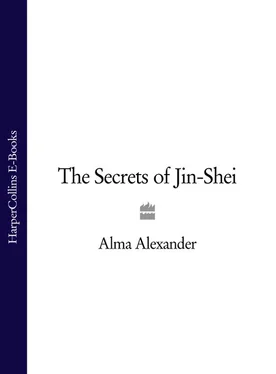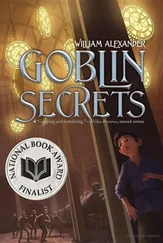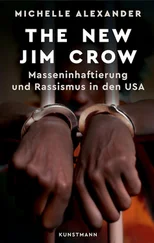Tai suddenly turned and gave Nhia a fierce hug. ‘You’ve always been my friend,’ she said.
‘Sometimes I think you’ve been my only friend,’ Nhia said with a trace of bitterness.
Tai sat back and gave Nhia a long look. ‘That’s not true,’ she said. ‘Everybody likes you. People are always asking you what you think. People trust you.’
‘People have never liked me, Tai,’ Nhia said.
‘But you’ve solved all sorts of problems back in SoChi Street.’
Nhia dismissed that accomplishment with a wave of her arm. ‘That’s not the same. People trust me, yes. Sometimes I think people tell me more than they think I ought to know. But that leads away from affection, not towards it! If they know I know all those things about them, yes, they trust me – but they will never like me. Folks never like those who know too much about them.’
‘You’re one of the wisest people I know,’ Tai said sturdily, loyally.
Nhia smiled. ‘That’s because you haven’t met many people yet.’
‘I have,’ Tai said rebelliously. ‘In the Summer Palace …;’
The words sank into a pool of silence that was sorrow. Nhia reached over and squeezed Tai’s cold fingers.
‘I know you have lost something wonderful,’ she said. ‘But you’ve always been a little sister to me, Tai. Sometimes you really were the only person I could talk to. Whatever else happens in either of our lives, I wanted you to know that. It doesn’t make up for the Little Empress, but …;’
‘But I’ve had a real, live jin-shei-bao living next door to me all my life and I never knew it,’ Tai said.
Nhia gave her a startled look. ‘That’s not what I meant,’ she began, but Tai turned her hand and laced her fingers through the older girl’s.
‘But I mean it,’ she said, ‘if you wish it.’
For a moment, Nhia could not find the voice to speak at all, and then, when the words did come, they were raw with emotion.
‘I can hardly take the place of the first heart’s sister, of the one who would have been Empress,’ she said, ‘but I’ll be your sister if you want me to be. I would be proud to have you call me that.’
That had been the second gift, another jin-shei , another place for the love that had been Antian’s legacy to be bestowed.
The third gift of the Gods had been even more unexpected.
Although she’d been coming to the Temple since she was a babe in arms, it had been only in the last year or so that Nhia’s presence had begun making a real impact there. She had barely turned fourteen when she and a young acolyte she had been in conversation with had been approached by a politely deferential older woman who posed the question – to the acolyte – as to which deity she should approach with her problem. ‘Help me, blessed one, for I am not certain which of the Gods would be best to approach – I am not worthy of what is being asked of me, I need to know …;’
It had been Nhia, aged only fourteen and not bound to the Temple hierarchy at all, who had responded to this plea, with a story of Han-fei, the hapless adventurer whose encounters with Gods and Immortals were such a fertile ground to harvest good advice from.
‘When Han-fei met with an Immortal beyond the river Inderyn where the Heavens are,’ Nhia had spoken into the expectant silence, while the Temple acolyte was still pondering the question, ‘he threw himself at the feet of the Blessed Sage and would not raise his eyes from the hem of the robe that the Immortal Sage wore. “I am not worthy, O Blessed One, I am not worthy!” The Sage said, “What do you see when you look into the mirror, Han-fei?” And Han-fei said, “I see a man with no beauty in his face and no wisdom in his mind and no humility in his spirit.” And the Sage bade Han-fei take a mirror from his hand and said, “Then look again, for what I see is a man with the beauty of face which is a reflection of the modesty of his soul, with the wisdom of mind to know what he does not know, and with the humility of spirit to spend his life in trying to learn and understand the things he is ignorant of. Rise, Han-fei, for you are worthy.”’
The woman had taken Nhia’s hand and kissed it, in silence, and backed away, bowing. The acolyte had stood and stared at Nhia for a long moment.
‘Where did you learn that tale?’ he had asked.
‘I hear many of them, in these halls,’ Nhia had said. ‘I see the teaching monks with the children in the courtyards sometimes. I listen, and I remember them.’
‘That is good,’ the acolyte had said carefully, ‘except that the one you just told has never been one of the teaching tales. For all I know, it has never been recorded as having happened to Han-fei.’
‘I didn’t just make it up!’ Nhia had protested, her heart lurching into her heels. ‘I must have heard it.’
‘You invented it, Nhia, and it was perfect,’ the acolyte had said.
Nhia’s first reaction was a rising panic. ‘Don’t tell anyone,’ she pleaded. ‘I won’t do it again. I just meant to …;’
‘But why ever not?’ the acolyte had asked. ‘You’re a natural teacher. Perhaps one day you will even be a real part of this Temple; you already know more than some who have been pledged to it for years.’
Whether or not the acolyte told anyone about the incident, Nhia never found out – but only because events overtook her. Even if the acolyte had held his tongue, the woman to whom Nhia had told her Han-fei tale obviously had not.
Haggling over a fish at the marketplace, perhaps a week or so after the encounter at the Temple, Nhia turned to a gentle tugging on her sleeve and was surprised to recognize the seeker from the Temple. The woman was accompanied by a brace of small children, one of them only a few years younger than Nhia herself, all of whom stared at Nhia inscrutably. Nhia stared back, nonplussed.
‘I wished to thank you, young sai’an ,’ the woman said in a low, deferential voice. ‘You have helped me understand. My husband’s mother is in need of your wise words, also, but she is bedridden and cannot go to Temple often. Perhaps if you would come?’
‘But I am not one of the blessed ones of the Temple,’ Nhia had said helplessly.
Just for a moment, the woman looked surprised, and then her expression settled into certainty again. ‘Maybe you are not one of the ones wearing the robes, sai’an , but you have the wisdom of the Immortals in you. My mother-in-law would be grateful if you would come. If only for a few moments. We live in ZhuChao Street, in the yellow house on the corner. If you please, sai’an. ’
Nhia had wanted nothing more than to bolt into the midst of the marketplace and to lose herself in the crowds – but she could not run. She could not ever run. Not from this; not from anything. The irony of this made a wry grin touch her lips. The woman interpreted this as acceptance, or dismissal – in any event she had backed away, bowing, accompanied by her brood.
Several other customers at the fishmonger’s stall had been witness to this exchange, and the fishmonger himself, who had known Nhia from babyhood, stood with her intended purchase still in his hand.
‘So you are a Sage, now, young NhiNhi,’ the fishmonger had said. There was an attempt at levity there, but there was something else also – a curiosity, a careful interest. The marketplace lived by gossip and rumour, this was how the news was spread from one corner of the sprawling city that was Linh-an to the next. There was, maybe, a story here.
‘I am no such thing,’ Nhia had said, very firmly, and had brought the subject of the conversation back to the fish.
But another woman had stopped her in the street two days later, asking a very specific question. The question concerned the child whom she held by the hand and who stood staring at Nhia with the blank obsidian gaze which was very familiar to her. She had worn that mask herself. The child’s other arm and hand, not the one held by her mother, were thin and withered, her fingers bent into a pitiful claw which she held folded into her belly. This was another Nhia, a cripple whose mother was driven to ask for help where she thought she could find it.
Читать дальше






![Theresa Cheung - The Dream Dictionary from A to Z [Revised edition] - The Ultimate A–Z to Interpret the Secrets of Your Dreams](/books/692092/theresa-cheung-the-dream-dictionary-from-a-to-z-r-thumb.webp)





